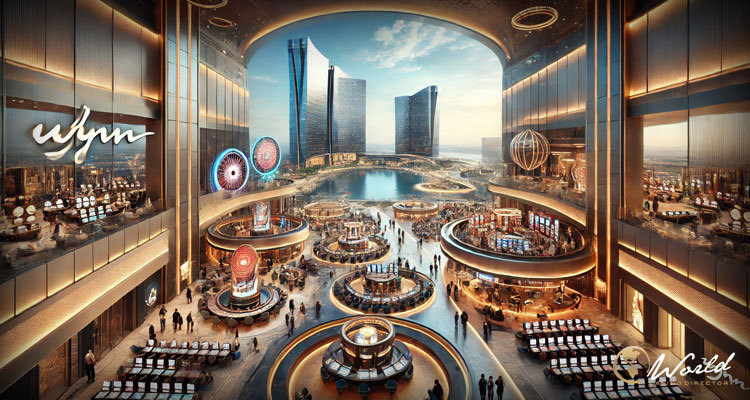Wynn Resorts has officially announced the estimated budget for its highly anticipated integrated resort in Ras Al Khaimah, United Arab Emirates. The project is expected to cost a total of $5.1 billion, with Wynn contributing $1.1 billion in equity, according to an investor presentation held in conjunction with the G2E event in Las Vegas this week. The development, located on Al Marjan Island, will be one of the region’s most ambitious hospitality ventures and is set to open in the first quarter of 2027.
$5.1 billion investment in UAE expansion:
Wynn’s integrated resort project in Ras Al Khaimah will primarily be funded by $2.4 billion in debt, which has already seen strong interest from both local and international investors. Wynn’s current financial input sits at $200 million, with the remaining $900 million to be contributed over time. According to Wynn, the overall development costs include land acquisition, fees, and capitalized interest, with direct construction costs accounting for $4.55 billion of the total budget.
The project has drawn considerable attention, not only because of its scale but also because it marks Wynn’s entry into the Middle Eastern market. The resort will cater to a luxury-seeking clientele, particularly targeting ultra-high-net-worth individuals from surrounding regions like Dubai. Wynn’s presentation emphasized the potential of its high-end services to appeal to this demographic, who have “extraordinary propensity to spend on high-end F&B and hotels.”
Wynn Resorts is optimistic about the financial prospects of its UAE project, estimating annual gross gaming revenue (GGR) between $1.33 billion and $1.67 billion once the resort is fully operational, as reported by Inside Asian Gaming. The resort’s total operating revenues are expected to range from $1.38 billion to $1.88 billion per year, with EBITDA margins projected to reach as high as 43%. These estimates are based on the competitive landscape, which includes two other integrated resorts expected to be licensed in the UAE.
Despite these competitors, Wynn is confident that its resort will stand out. The company highlighted the significant demand for high-end hospitality in Dubai, describing the market as “large, wealthy, and underserved.” Wynn anticipates drawing both international VIPs and domestic expats living in the UAE, of which there are approximately 9 million, many of whom could be untapped potential gaming customers.
Infrastructure and timeline for completion:
Construction of Wynn Al Marjan Island is well underway, with the resort tower expected to be completed by late 2025. According to GGRAsia, once finished, the resort will feature 1,542 hotel rooms, including 297 suites, six townhouses, and 22 luxury villas. The complex will also boast 16 restaurants, six bars and lounges, 130,000 square feet of retail space, and 145,000 square feet dedicated to meetings, incentives, conferences, and exhibitions (MICE) activities.
Wynn’s local partners in the development include RAK Hospitality Holding LLC and Al Marjan Island LLC, who collectively own 60% of the project’s equity. Wynn itself holds the remaining 40% and will also earn management and license fees from the resort’s operations. The company aims to attract a broad range of guests, from international VIPs to local residents, by offering a unique blend of luxury accommodations, fine dining, and high-end gaming.
One of the most notable aspects of Wynn’s Ras Al Khaimah venture is its exclusive 15-year gaming license, which will allow the company to operate the only casino in the emirate for the foreseeable future.
With the resort’s opening date set for 2027, Wynn Resorts is poised to make a significant impact on the hospitality and gaming landscape in the UAE. The success of the Al Marjan Island resort could pave the way for further expansions into the region as Wynn continues to explore new markets outside its traditional strongholds.



